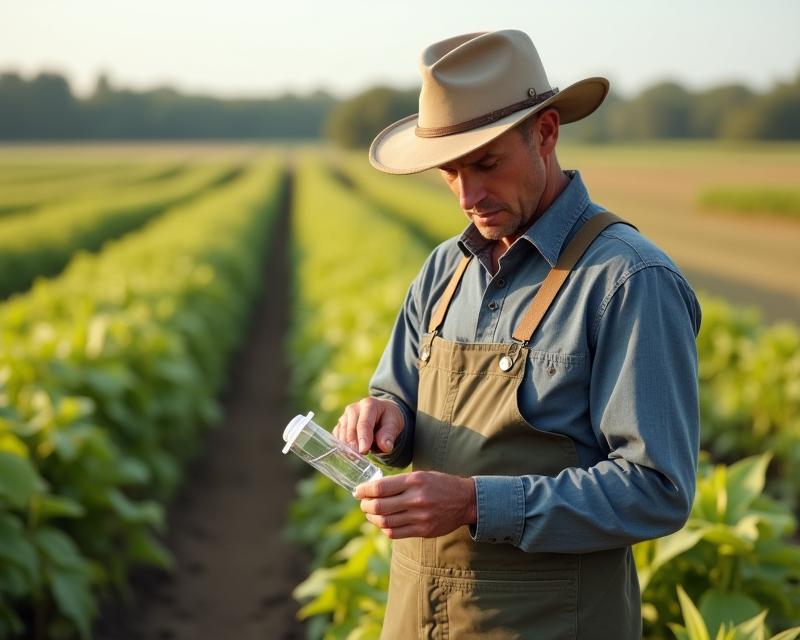Is Your Farm Getting Enough Water?
Publish in Agriculture el 22/07/2025 16:22
Knowing if Your Water is Adequate for Agriculture
Water is the lifeblood of any successful farm, garden, or ranch. Ensuring your crops and livestock receive the right amount of water is crucial for healthy growth, optimal yields, and overall farm prosperity. But how do you *know* if you're providing enough? Ignoring signs of water stress can lead to significant losses, impacting your bottom line and the quality of your products. This article will walk you through recognizing the telltale signs of water stress in plants and how to adjust your irrigation practices accordingly.

Understanding Water Stress in Plants
Plants, like all living things, need water to survive. When water isn't available in sufficient quantities, plants enter a state of water stress. This stress manifests in various ways, and recognizing these signs early is key to preventing serious damage. Water stress isn't just about wilting; it's a complex physiological response that affects plant growth and development. Different crops exhibit different symptoms, so it's important to be familiar with the specific needs of what you're growing.
Identifying Water Stress Indicators
Here are some common indicators of water stress in plants. Keep a close eye on your crops and look for these signs:
- Wilting: This is often the first and most obvious sign. Leaves droop and lose their turgor (firmness). However, wilting can also be a sign of other issues, so don't rely on it alone.
- Leaf Color Changes: Leaves may turn yellow (chlorosis) or brown, especially older leaves. In some cases, leaves might develop a reddish or purplish hue.
- Stunted Growth: Plants may grow slower than usual, and new growth might be smaller or delayed.
- Leaf Curl or Tip Burn: Leaves can curl upwards or downwards, and the tips may turn brown and crispy.
- Premature Leaf Drop: Plants may shed leaves earlier than normal.
- Reduced Fruit or Flower Set: In fruit-bearing crops, water stress can lead to smaller fruits, poor fruit development, and reduced flowering.
Adjusting Your Irrigation Practices
Once you've identified signs of water stress, it's time to adjust your irrigation. Here are a few things to consider:
- Check Soil Moisture: Don't just rely on visual cues. Use a soil moisture meter or simply dig down a few inches to assess the moisture level.
- Irrigate Deeply and Less Frequently: Encourage deep root growth by watering thoroughly but less often. This helps plants become more resilient to drought.
- Consider the Time of Day: Watering in the early morning or late evening minimizes water loss due to evaporation.
- Monitor Weather Conditions: Adjust your irrigation schedule based on rainfall and temperature. Hot, dry weather will require more frequent watering.
- Drip Irrigation: Consider implementing drip irrigation systems. These deliver water directly to the roots, minimizing water waste and maximizing efficiency.





